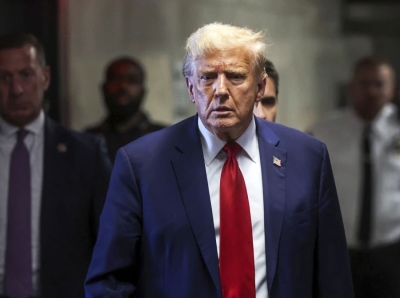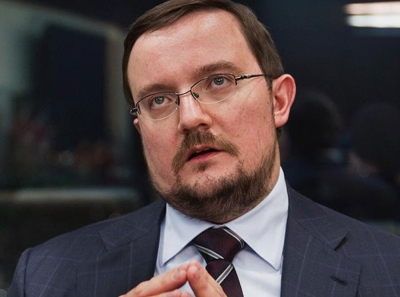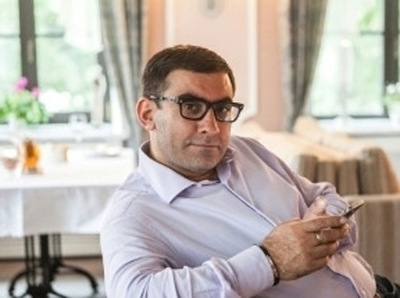COP28: how much can Dubai do for the climate?
At the start of the 28th UN Climate Change Conference which began on Thursday in Dubai, Germany and the United Arab Emirates have agreed to pay almost 200 million euros into the climate disaster fund to help poor countries cope with damage caused by climate change. Other countries, including the US and the UK, followed suit. Commentators still see many problem areas and call for more far-reaching resolutions.
Chequebook policy instead of scrapping oil and gas
La Vanguardia sees huge contradictions:
“It has never been clearer to the scientific community and society that the planet needs to be saved from the climate crisis. But more and more governments and companies are demanding that the same measures be applied for everyone to avoid unfair competition. European companies are no longer afraid to say that they won’t decarbonise unless Chinese companies follow suit. And because of the energy shortage problems caused by the war in Ukraine, commitments are being broken again. ... The first day of the conference at least brought the good news that a fund is to be set up for the most vulnerable countries. ... It’s easier to pull out the chequebook than to say goodbye to fossil fuels.”
Subsidised fossil fuels are the big problem
The achievements celebrated as a success in Dubai are distracting from the main issue, writes the Financial Times:
“The UAE government will be touting its investment in renewable energy. ... There will also be noise around UN initiatives to curb methane leakage, reduce coal use and provide poor countries with (a bit) more money for green energy. ... But amid all this shouting, there is one issue on which there is a near-silence: the subsidies that governments currently provide for fossil fuels, for example by offering petrol or coal to consumers and companies at artificially cheap prices.”
"New green world" still a long way off
Naftemporiki is pessimistic:
“Instead of being driven forward because of the ‘gas war’ that has broken out due to the Russian-Ukrainian crisis and the risks of new conflicts over oil that have flared up in the Middle East, the transition to renewable energy sources is being undermined. The ‘new green world’ will unfortunately emerge more slowly and in a more limited form. Quite a few fear that yet another international climate summit will end up as nothing more than a PR event in the Dubai desert. The fact that the BBC recently revealed how the hosts wanted to use the climate summit to do business with fossil fuels fits in with this idea.”
More optimism, please!
Doomsday scenarios are counterproductive, Ouest-France warns:
“Apocalyptic communication is not without danger. The fear fuelled by all the talk about the end of the world can lead to particularly counterproductive extremes. In the past it has contributed to the election of major climate sceptics like Donald Trump in the US or Jair Bolsonaro in Brazil. And it could pave the way for new populists along the lines of Javier Milei in Argentina or Geert Wilders in the Netherlands. It would be wise now to also talk about the positive progress made in recent years. ... Because there are not only reasons for despair. Just because this new COP is taking place in a country where oil rules does not necessarily mean that it will end in failure.”
Bad prospects with oil lobby and without Biden
Politiken finds it completely inappropriate that Dubai is the venue for the conference and that Sultan al-Jaber, who is said to have proposed new oil and gas extraction projects to some leaders at the summit, is presiding over the conference:
“The scandal is as sad as it is predictable. It was a bizarre idea from the outset to hold a climate summit in Dubai. The Middle East’s answer to Las Vegas, a desert city that has become famous for its huge shopping centres with artificial indoor ski slopes and aquariums so big you can get a diving licence in them. ... With Dubai as the host city and an irresponsible cancellation by the otherwise climate-friendly President of the United States, Joe Biden, it’s hard to be overly optimistic.”
Not much to get excited about
Respekt is not very optimistic about the outcome:
“Not that things haven’t changed for the better at all. The world was heading towards an increase of almost four degrees in 2010. That figure is now ‘only’ around 2.5 degrees — also thanks to the Paris Agreement concluded in 2015. Assuming, that is, that the countries achieve all they have promised under the agreement. With the advance of renewable energies, the annual rise in global greenhouse gas emissions should peak by the end of the decade and then begin to fall. But that’s where the good news ends. The speed with which the emissions curves would have to flatten to avoid exceeding the 1.5 degree warming limit is breathtaking.”
Time to deal with difficult partners
Sultan al-Jaber is not necessarily the worst partner for a green transition, Libération interjects:
“Given the moderate success of some previous COPs organised in climate-friendly countries, why not take the bull by the horns and talk to those who are most opposed to change? The man is a pragmatist who has gone to great lengths to set up a renewable energy company, Masdar, which has also given its name to the green city he is trying to build near Abu Dhabi. ... So at least he knows a thing or two about renewables. Now he and the many lobbies and consultancies that surround him just need to be converted to energy austerity. Not easy, but a nice challenge.”
Decarbonisation also makes sense economically
Susi Dennison, Director of the European Power Programme at the European Council on Foreign Relations (ECFR) think tank, interprets the EU’s role in El Mundo:
“Europe has a lot to gain by remaining the engine of the global green transition despite the complicated geopolitical circumstances. But it will have to convince the public more clearly that the EU can prosper from this in the global economy. ... The task is to build a more solid political narrative that explains why decarbonisation is not only the right thing to do, but also makes sense economically. If it fails to do this, and bearing in mind what could happen in the US presidential election in 2024, we run the risk that COP29 will be more concerned with salvaging what it can from the shipwreck of the Paris Agreement than with keeping it alive.”
Move away from mammoth format
De Standaard argues that this type of conference is outdated:
“Perhaps the more fundamental question is whether the current form of the meeting serves the desired goal. Before every high-profile COP, preparatory meetings are held discreetly behind the scenes in Bonn, the seat of the UNFCCC Secretariat. An annual small-scale meeting in this German city to confirm decisions would perhaps generate less prestige and attention, but also fewer greenhouse gas emissions. And whether the outcome would be so different is questionable.”
Still not on the right path
A change of course is urgently needed, Avvenire demands:
“The latest data published by the UN in recent days is far from encouraging. Greenhouse gas emissions — after falling due to the pandemic — have started to rise again. Despite increased awareness and undeniable steps forward in recent years, the world is still not on the right track. .... In the report we find a very clear figure: the richest 10 percent of the population are responsible for 50 percent of global emissions, while the poorest 50 percent are responsible for 12 percent. This confirms that incorrect consumption patterns and lifestyles are at the root of our problems.”
A conference of contradictions
The Salzburger Nachrichten is surprised that the climate summit is taking place in Dubai of all places:
“The contradictions are almost glaring enough to cause physical discomfort: next week, tens of thousands of participants will fly to the UN Climate Change Conference. ... The travel to the conference alone will cause CO2 emissions, which will be the subject of heated debate at the meeting, to rise sharply. ... And Dubai is building on fossil fuels in the truest sense of the word. The chairman of the climate conference is also one of the country’s leading oil managers — in a film, this constellation would probably be considered hopelessly exaggerated.”
Don’t bet on failure
The problematic conditions of the climate conference do not exempt us from responsibility, economist Christian de Perthuis insists in Le Monde:
“In many respects, the United Arab Emirates is the place where the question of phasing out fossil oil and gas should be put on the table. Its position as a fossil fuel profiteer is like a distorting mirror that amplifies the existential question we all face. ... The organisation of COP28 in Dubai is undoubtedly not perfect, and the choice of its president is debatable. But we should not bet on its failure in advance and forget our own responsibility for the continuation of the oil and gas adventure.”
China won’t want to thwart advances
Beijing could well play a constructive role, The Economist hopes:
“China has become a leader in green-energy technology. The rest of the world is largely dependent on Chinese solar-panel and battery supply chains. This year China overtook Japan to become the world’s largest car exporter, thanks in part to Chinese dominance in electric vehicles. So there is some hope that China will play a productive role at the climate summit in Dubai. With ambitions to lead the global south, it will not want to look as if it is neglecting an issue that is foremost on the mind of many officials in developing countries.”









